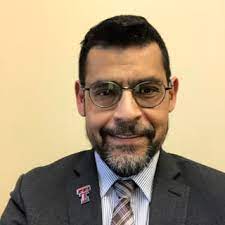As a universal health challenge, cancer continues to pose a significant threat, with the World Health Organization reporting approximately 9.6 million related fatalities in 2020. This alarming statistic emphasizes the critical need for efficient care and therapy in combating this disease. Among the myriad of dedicated healthcare professionals, hematologist-oncologists like Dr. Mohamed Basil Aswad stand out due to their specialized skills and multifaceted roles. These experts possess the unique capability to diagnose, manage, and provide continued care for adult cancer patients. In this discussion, we examine the crucial role played by hematologist-oncologists such as Dr. Aswad in the realm of adult cancer treatment.
Hematologist Oncologists: A Dual Expertise
Hematologist oncologists like Dr. Mohamed Basil Aswad are equipped with vast knowledge and training in two distinct yet interconnected medical disciplines: hematology, which is the study of blood and its disorders, and oncology, dedicated to cancer care. This combined expertise allows them to address the often complex relationship between blood-related disorders and cancer, a characteristic commonly seen in hematological malignancies such as leukemia, lymphoma, and myeloma. As a result, Dr. Aswad has a thorough understanding of the effects of cancer on the circulatory system, empowering him to deliver a level of care that surpasses what a general oncologist or hematologist might offer.
Diagnosis and Staging
One of the primary responsibilities of hematologist oncologists is to accurately diagnose cancer in adult patients. They employ a wide array of diagnostic tools, including imaging techniques like CT scans, MRIs, and PET scans, as well as laboratory tests, such as blood counts, biopsies, and genetic testing. This thorough diagnostic process enables them to identify the type, stage, and extent of cancer, which is crucial for determining the most appropriate treatment plan.
Tailoring Treatment Plans
Once a hematologist oncologist has established a precise diagnosis, they are tasked with developing a tailored treatment plan for the patient. This plan takes into account factors like the type and stage of cancer, the patient's overall health, and their individual preferences. Hematologist oncologists are well-versed in the wide array of treatment options available, ranging from surgery and chemotherapy to radiation therapy, immunotherapy, and targeted therapies. They can provide expert guidance on the pros and cons of each option, helping patients make informed decisions about their care.
Administering Chemotherapy and Targeted Therapies
Chemotherapy, a primary pillar of cancer treatment, is administered with great expertise by hematologist-oncologists such as Dr. Mohamed Basil Aswad. Proficient in understanding the intricate pharmacokinetics of these potent pharmacological agents, Dr. Aswad can tailor the dosage to achieve maximum therapeutic benefits while mitigating adverse reactions. Furthermore, Dr. Aswad's role encompasses the use of targeted therapies — an innovative approach that precisely attacks cancer cells, preserving healthy tissue. This area of proficiency significantly enhances treatment outcomes and lessens the burden of chemotherapy-related side effects.
Managing Side Effects
Cancer treatment often comes with a range of challenging side effects, which can significantly impact a patient's quality of life. Hematologist oncologists excel in managing these side effects and mitigating their severity. Whether it's addressing chemotherapy-induced nausea, fatigue, or anemia, or managing the immune-related side effects of immunotherapy, these specialists provide crucial support to help patients cope with the physical and emotional toll of treatment.
Coordinating Multidisciplinary Care
Cancer care is rarely a one-size-fits-all approach. It often involves a multidisciplinary team of healthcare professionals, including surgeons, radiologists, pathologists, and nurses, among others. Hematologist oncologists serve as the central coordinating figures in this collaborative effort. They liaise with other specialists to ensure that patients receive holistic care that addresses all aspects of their condition. This coordination helps streamline the treatment process, enhances communication among healthcare providers, and ultimately improves patient outcomes.
Monitoring and Surveillance
After the initial treatment phase, hematologist oncologists continue to play a pivotal role in patient care. They conduct regular follow-up appointments and monitoring to assess the patient's response to treatment and to detect any signs of recurrence or complications. This ongoing surveillance is essential in managing cancer as a chronic disease and ensuring that patients receive timely interventions if necessary.
Clinical Trials and Research
Not solely restricted to clinical duties, hematologist-oncologists like Dr. Mohamed Basil Aswad also significantly contribute to the ongoing research aimed at enhancing our comprehension of cancer and its various treatment methods. Actively involved in clinical trials, they play an instrumental role in the development of novel therapies and the improvement of existing ones. Through patient enrollment in these trials and their commitment to keeping up-to-date with current research findings, Dr. Aswad ensures that his patients have access to the most advanced treatments, contributing substantially to the collective pool of knowledge that propels advancements in cancer care.
Providing Emotional Support
Cancer is not just a physical battle; it is an emotional and psychological one as well. Hematologist oncologists recognize the importance of providing emotional support to their patients. They establish strong doctor-patient relationships built on trust and empathy, which can make a significant difference in a patient's journey. By addressing their patients' fears, anxieties, and emotional needs, hematologist oncologists contribute to a more holistic and patient-centered approach to cancer care.
Adult cancer care is greatly enriched by the critical role hematologist oncologists, such as Dr. Mohamed Basil Aswad, play. Their dual specialization in oncology and hematology enables them to offer comprehensive care to cancer patients including diagnosis, treatment, and beyond. Their responsibilities range from devising treatment plans, managing side effects, leading multidisciplinary care teams, to participating in groundbreaking research. They are instrumental in enhancing cancer care outcomes and improving patients' quality of life. More than just medical practitioners, they serve as robust pillars of hope, support, and resilience for patients and their families, manifesting a boundless dedication in the battle against cancer.





Comments